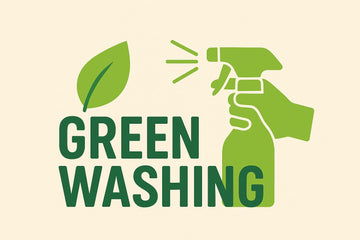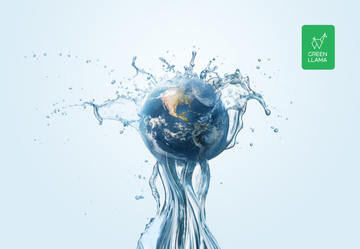Protecting our Future: Sustainable Water Use and the Fight Against Plastic on World Water Day
by Kay Baker on Mar 16, 2023
World Water Day: Microplastics in Our Water — What You Can Do
TL;DR
- A 2022 study detected plastic particles in the blood of many participants. The big question is how plastics enter our bodies.
- World Water Day (22 March) spotlights freshwater protection and fair access.
- Cut exposure by choosing water‑wise habits at home: filter where sensible, avoid single‑use plastic, and pick water‑friendly cleaners.
A 2022 peer‑reviewed study reported detectable levels of microplastics — including polyethylene terephthalate (PET) — in the blood of a significant portion of its participants (1). That raises a practical question: how do plastic particles reach the body? With World Water Day on 22 March, here is what the day means and how protecting clean, fresh water starts at home.
What is World Water Day?
World Water Day is marked each year on 22 March to raise awareness of freshwater and the need for sustainable management. The United Nations designated the day in 1993 to focus attention on the role water plays in our lives and ecosystems.
Why freshwater still matters
Freshwater underpins health, food, and livelihoods. Yet pressures from population growth, urbanisation, pollution, and climate change make clean water harder to secure. Billions of people still lack reliably safe drinking water and sanitation, which drives preventable disease. Effective action pairs local behaviour change with broader policy and infrastructure improvements.
How microplastics can reach people
- Fragmented plastics in the environment: Larger plastics break down into micro‑ and nano‑sized pieces that can enter waterways.
- Household sources: Laundry fibres from synthetic fabrics, abrasive scrub pads, and residue from certain cleaning product packaging may wash down drains.
- Food and drink pathways: Particles have been found in some bottled water and seafood in various studies; ingestion is one plausible route of exposure.
- Airborne dust: Indoor dust can contain microfibres that we may inhale and later swallow.
Scientists are actively studying exposure routes and potential health impacts. In the meantime, practical steps can help reduce what enters our homes and waterways.
Practical steps at home
- Choose concentrated refills: Tablet and powder formats reduce plastic packaging and water weight in shipping.
- Wash on cold when possible: Cuts energy use and can lower microfibre shedding versus hot cycles.
- Use a microfibre‑capture aid: Consider laundry bags or filters designed to trap fibres before they reach drains.
- Prefer durable over disposable: Reusable bottles and cloths limit single‑use waste.
- Filter smartly: Where appropriate, use certified point‑of‑use filters and replace them on schedule.
How Green Llama fits in
Our water‑friendly approach focuses on compact, water‑free refills and compostable or minimal packaging. Advanced tablets dissolve in tap water inside a reusable bottle, and our enzyme‑powered laundry powder is made to perform in cold cycles. Small switches add up for households and waterways alike.
FAQ: World Water Day & Microplastics
- Is the 80% figure exact?
- The cited 2022 study detected plastic particles in many participants’ blood. Results vary by study design and methods, so figures are best viewed as early evidence rather than a fixed prevalence rate.
- What is PET and where does it come from?
- PET (polyethylene terephthalate) is a common plastic used in drinks bottles and packaging. Over time, items can fragment into tiny particles that may enter air, food, or water.
- Does bottled water contain microplastics?
- Some studies have reported particles in samples of bottled water. Levels differ widely by product and test method. A certified home filter may help reduce certain particulates.
- Are enzyme‑powered detergents safe for waterways?
- Enzymes target soils at low temperatures, which can reduce energy use. Always follow label directions and local guidance on greywater disposal.
- What simple habits help right now?
- Use concentrated refills, wash on cold when practical, capture laundry fibres, avoid single‑use plastics, and maintain filters. Small, consistent changes matter.
References
- Leslie H.A. et al. Discovery and quantification of plastic particle pollution in human blood. 2022. Environment International. Vol. 163, 107199. https://doi.org/10.1016/j.envint.2022.107199.





